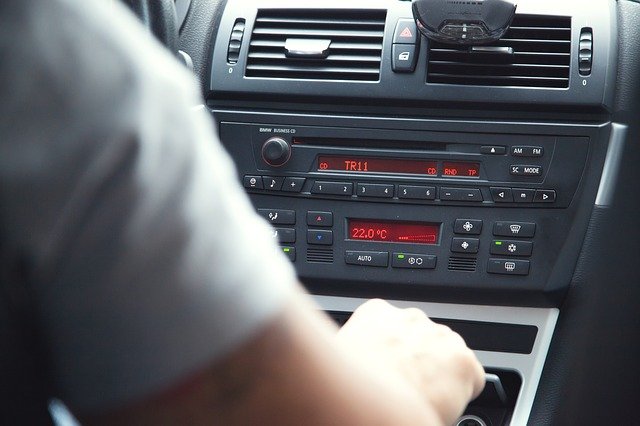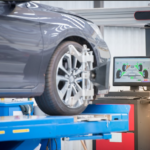If you happen to purchase a new car, you might be in a dilemma over whether to carry the insurance documents and other papers all the time. It would be wise to keep a copy of your automobile insurance in your vehicle in this regard. In addition, when you drive on public roads in Canada, make sure to carry your registration certificate, driving license, insurance documents, and any other relevant papers with you.
Inability to furnish your insurance documents before the civic authorities may result in hefty fines. Although most car owners prefer carrying a digital copy of their insurance, you can also have a physical copy, considering its tangibility.
Reputed insurance specialists such as Surex recommend their clients to carry both the physical and the digital copies of their insurance documents. The physical documents would come to your rescue if you don’t have a strong internet connection on your phone or the area doesn’t have Wi-Fi.
How Do Most Car Owners Store Their Documents?
Digital lockers are already in vogue, where you can store all sorts of documents in cloud systems. This also saves space in your car. Then, when requested, you can produce digital versions of your documents.
However, as stated above, it is always wise to carry a physical copy of your car’s crucial documents. This includes the insurance policy documents as well.
How Long Should You Store The Records?
As a car owner, you must know the duration for which you need to keep your car insurance policy records. So even if you have got a new policy or a new vehicle altogether, make sure to carry the necessary documents with you.
Many policyholders tend to discard the papers once the policy expires. You might be unaware, but you may need your old car insurance policy documents even in the future. When you purchase the policy, the insurers will provide you with several documents to carry in your vehicle. It doesn’t matter whether it’s an existing policy or an old one; make sure to carry these documents in your car.
In this section, you will get to know which insurance documents you should retain and which ones you can discard.
1. The Automobile Insurance Card
This is a handy document and would seamlessly fit into your wallet or the glove compartment. Make sure to keep this document round the clock with you. Besides, your insurance company might have provided you with a digital version of your insurance card. Keep a hard copy of this document, along with its picture, on your mobile phone. In case the physical copy gets misplaced, the soft copy would come in handy.
In certain states, it is mandatory to have physical copies of your insurance documents in your car. The reason is that it’s convenient for the police to check your documents when necessary. Besides, you would require your insurance documents on the spot if you get involved in an accident. The insurance card would carry your policy number and other relevant information that you would have to provide to the other driver.
2. Your Car Insurance Policy Declarations
When you purchase your automobile insurance policy, you will receive the declaration page along with the other documents. You would also get these documents when you get your policy renewed. The declaration would carry the policy number, address, name, and a brief about the policy’s coverage.
Make sure to place these documents in a safe place in your car. You can remove them only when you get a new policy or renew the existing one.
3. Documents Related To Claims
At times, drivers or car owners share open claims with their respective insurance companies. Therefore, you need to retain all the repair bills, receipts, and other documents related to the claim with you.
Therefore, place these papers in a safe location in your car. Then, once the insurance company officially closes the claim and you receive a check, you can dispose of these documents.
4. The Billing Statements
If your automobile insurance policy is related to a business, it would be wise to keep all the billing statements in a file with you. This is more for tax purposes than traffic norms or legal matters.
For instance, you might have a home office or use your vehicle commercially. If such is the case, you need to carry the billing statements all the time. This is because you may be audited, and then you’ll have to furnish the bills. Therefore, it is recommended to carry these documents with you for at least seven years.
5. The Insurance Premium Statement
The billing statement of your insurance premium should always be with you. It is wise to keep them in good condition and a safe place from a long-term perspective. This is because you should be aware of your premium rates over an extended period.
In the process, you will get an idea of how frequently your premium rates change. In case you find the rates to be excessively high, you might consider changing the insurance company. Once you compare the present rates with what you paid a couple of years back, you’ll have a clear picture.
Insurance Documents You Need Not Carry
Here are a few insurance documents that you would not require in your car.
1. The Main Insurance Policy Document
The primary insurance policy document consists of several documents, and you wouldn’t require them in your car. It mainly carries details about the discounts, policy limits, endorsements, coverage, etc. Although you might retain the papers until the next renewal, there’s no need to carry them in your car.
2. Canceled Checks
You won’t require the cancelled checks from premiums that you have paid. In fact, most banks do not even return these checks. But even if they do, there’s no need to carry them around.
Endnote
Getting the correct type of insurance is imperative, as your car would be exposed to several risks on the road. More importantly, you need to keep those documents within arm’s reach for demanding and unprecedented scenarios. Whether you are at fault or not, having adequate coverage for your vehicle is always a good idea. You can make significant savings on your policy by consulting insurance specialists. Professional advice also ensures enough financial protection for your car.
Related Posts












